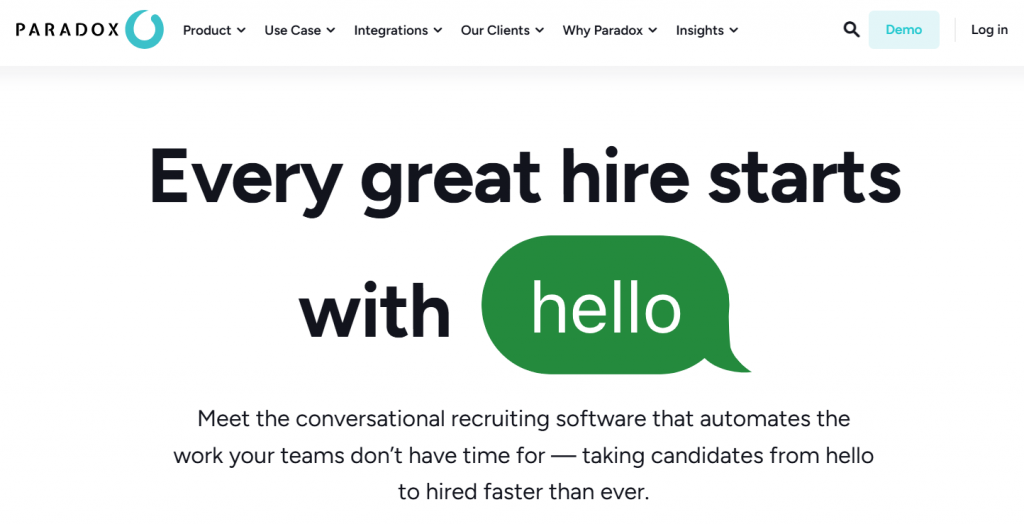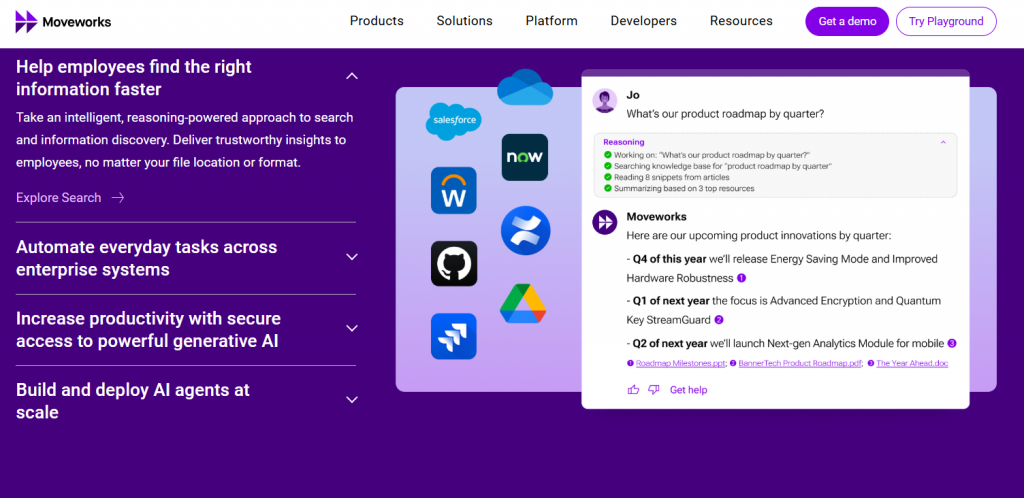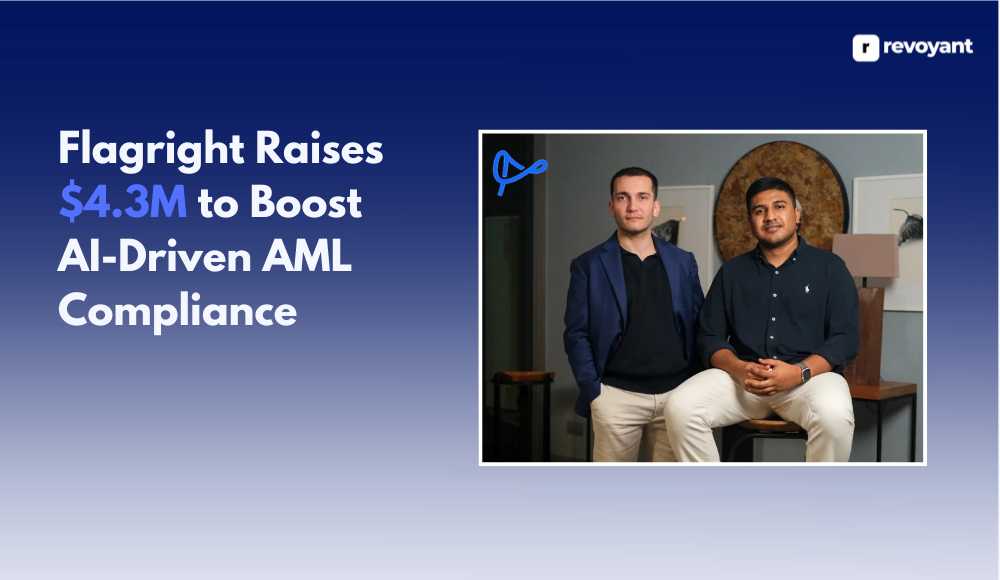AI agents are revolutionizing HR by automating key tasks, such as recruitment, onboarding, and employee engagement. Using machine learning and natural language processing, these intelligent systems streamline operations, allowing HR teams to focus on strategic initiatives.
AI-driven tools enhance the recruitment process by automating candidate sourcing, screening, and interview scheduling, improving candidate experience and employer branding. During onboarding, AI agents guide new hires through training and company policies, while offering personalized learning recommendations for continuous development.
Employee engagement is strengthened with real-time feedback collection and sentiment analysis. AI chatbots provide 24/7 support, improving self-service options and employee satisfaction. As AI tools evolve, HR departments can work more efficiently and adopt a data-driven, employee-centric approach.
Key Takeaways
- AI agents automate key HR tasks, reducing manual intervention and enabling HR teams to focus on strategic goals.
- From candidate sourcing to interview scheduling, AI agents streamline recruitment, making the process faster and more personalized.
- AI-driven onboarding ensures a smooth experience for new hires through step-by-step guidance on company policies and role-specific tasks.
- AI agents identify skill gaps and recommend personalized learning paths, supporting employee growth and adaptability.
- Real-time feedback collection and 24/7 AI chatbot support boost employee satisfaction and reduce HR workload.
- AI agents provide actionable insights on employee engagement, turnover risks, and workforce planning, enabling better decision-making.
- Personalized updates and support throughout the recruitment process enhance the candidate’s journey, strengthening employer branding.
- As HR needs evolve, AI agents offer scalable solutions to manage growing teams and new challenges efficiently.
- With explainable AI (XAI) capabilities, HR departments can ensure transparency in decision-making, reducing bias and promoting fairness.
- By leveraging AI agents, organizations can adopt a data-driven, agile, and employee-centric approach to human resources.
How AI Agents Improve Recruitment
Automated Candidate Sourcing
AI agents streamline the candidate sourcing process by scanning online job boards, social media, and internal talent pools. This automation enables HR teams to identify suitable candidates based on predefined criteria such as skills, experience, and location. Platforms like LinkedIn Talent Insights offer data-driven support for identifying potential hires.
Screening and Shortlisting
One of the most time-consuming aspects of recruitment is sifting through large volumes of resumes. AI agents quickly analyze and rank candidates using pre-set criteria, significantly reducing the workload for HR teams. Tools like Paradox AI and HireVue use conversational AI to screen candidates through chat-based interactions or video interviews, helping recruiters identify top talent in less time.

Personalized Candidate Interaction
AI agents enable personalized communication with candidates at every stage of the hiring process. Automated emails, interview scheduling, and status updates keep candidates informed, which improves the overall experience. This transparency also boosts employer branding, as candidates feel more valued throughout the process.
Interview Scheduling Made Easy
Coordinating interview schedules can be a logistical nightmare, but AI agents eliminate this hassle. Tools like Calendly and X.ai sync calendars to identify available time slots, sending automatic invites to candidates and recruiters. This process reduces delays and ensures timely interview arrangements.
Bias-Free Recruitment
Bias in recruitment can hinder diversity and inclusion efforts. AI agents apply objective algorithms to evaluate candidates, focusing on qualifications and competencies rather than personal attributes. Platforms like Pymetrics offer assessments that match candidates’ cognitive and emotional traits with job requirements, ensuring a fairer hiring process.
Onboarding and Training
Onboarding is a critical moment for new hires, and AI agents offer personalized onboarding journeys. By guiding employees through policy introductions, compliance training, and role-specific instructions, AI-driven tools ensure a smooth transition. Platforms like Guidde create on-demand video walkthroughs and step-by-step tutorials, making onboarding more accessible and efficient.
Real-Time Feedback and Surveys
Employee engagement relies on timely feedback and communication. AI agents collect feedback through pulse surveys, engagement quizzes, and anonymous feedback forms. They can analyze sentiment and highlight areas that require improvement. For instance, Culture Amp and Peakon offer AI-driven insights that help HR teams understand employee morale in real time.
Personalized Learning and Development
AI agents facilitate personalized learning paths for employees. By identifying skill gaps and recommending relevant courses, they enable continuous development. Platforms like Coursera for Business and Udemy Business integrate AI agents that suggest personalized learning content, ensuring employees remain agile and future-ready.
Proactive Employee Support
AI agents serve as 24/7 support assistants for employees seeking help with HR policies, benefits, and technical issues. Chatbots like Espressive and Moveworks offer instant responses to employee queries, reducing the workload on HR service desks. This self-service model improves employee satisfaction and reduces wait times.

Boosting Employee Wellbeing
AI agents play a pivotal role in promoting mental health and employee well-being. Tools like Modern Health and Headspace for Work offer AI-guided mindfulness exercises, well-being surveys, and personalized coaching sessions. These initiatives help employees maintain mental clarity and emotional well-being, ultimately enhancing workplace productivity.
Challenges and How To Overcome Them
Privacy and Data Security
Challenge
AI agents process vast amounts of sensitive employee data, such as personal information, performance reviews, and engagement feedback. This raises concerns regarding data privacy and security, especially when dealing with compliance frameworks like GDPR and CCPA.
How to Overcome It
To address privacy and data security concerns, HR teams must implement end-to-end encryption for data storage and transmission. Role-based access control (RBAC) ensures that only authorized personnel have access to specific data.
Regular data audits, vulnerability assessments, and compliance checks ensure that security protocols remain up-to-date. Organizations should also work with AI vendors that guarantee GDPR and CCPA compliance. Informing employees about how their data is collected, stored, and used builds trust and transparency within the workplace.
Transparency and Accountability
Challenge
AI-driven decision-making often lacks transparency, leading to skepticism about how recruitment and employee evaluations are conducted. Hidden biases in algorithms could unintentionally influence decisions like hiring, promotion, and compensation.
How to Overcome It
The key to overcoming this challenge lies in explainable AI (XAI). HR teams should ensure that AI providers offer systems with explainable models, where the logic behind AI-generated decisions is clear. Documenting the decision-making processes of AI agents and training HR teams on the underlying logic increases trust and accountability.
Regular audits and fairness reviews help identify and address potential biases. Businesses should prioritize vendors that prioritize transparency in their AI models and provide clear explanations of their methodologies.
Resistance to Change
Challenge
Employees and HR staff may feel threatened by the introduction of AI agents, fearing that their roles may be replaced. Resistance to change is a natural response when there is uncertainty about how AI will impact existing workflows.
How to Overcome It
Effective change management is crucial for successful AI adoption. HR departments should clearly communicate that AI agents are tools to support employees, not replace them. Providing upskilling and reskilling opportunities prepares employees to work alongside AI.
Offering workshops, training sessions, and interactive demos of AI systems shows employees how these tools make their jobs easier. Encouraging employee feedback on the AI systems they interact with fosters a sense of ownership and collaboration. By involving employees in the change process, organizations reduce resistance and increase acceptance.
Future Trends of AI Agents in HR
Hyper-Personalization of HR Experiences
AI agents are set to offer hyper-personalized experiences for employees and candidates. Using data-driven insights, AI agents can create tailored learning paths, recommend personalized career opportunities, and offer content specific to individual employee needs.
This approach boosts employee engagement and career growth while ensuring that each employee’s unique goals and preferences are addressed. Personalized HR experiences reduce turnover, enhance employee satisfaction, and create a more agile workforce.
Voice-Activated AI for HR Tasks
Voice-based AI tools are becoming increasingly common. Employees will soon be able to interact with HR systems using voice commands, enabling hands-free support for tasks like scheduling leave requests, checking benefits, and accessing payroll details.
Devices like Amazon Alexa for Business are paving the way for voice-activated HR support. This development not only makes HR services more accessible but also reduces friction in everyday processes, enabling faster responses and improving employee satisfaction.
Predictive People Analytics
AI agents equipped with predictive analytics capabilities will transform workforce planning. By analyzing past employee data and trends, predictive analytics can forecast employee turnover, identify high-potential talent, and assess the future demand for specific roles.
Platforms like Visier leverage predictive insights, allowing HR teams to make data-driven decisions. These capabilities enable proactive talent management, ensuring businesses remain prepared for workforce shifts.
Greater Focus on Ethics and Compliance
As AI becomes more ingrained in HR processes, ethical considerations will take center stage. Organizations will need to ensure fairness, reduce bias, and maintain transparency in AI-driven decision-making. Ethical AI agents that comply with standards like GDPR and EEOC guidelines will become the norm.
Businesses must prioritize ethical AI usage to protect employee rights, ensure unbiased hiring, and build trust within the workforce. AI providers will be expected to offer transparent models that allow HR professionals to understand how decisions are made.
Conclusion
AI agents are redefining how HR teams approach recruitment, engagement, and employee development. By automating repetitive tasks and providing personalized support, these tools empower HR professionals to focus on strategy and human interaction.
Businesses that integrate AI agents into their HR processes stand to gain improved efficiency, enhanced employee experiences, and a competitive edge in talent acquisition and retention. The future of HR is shaped by automation, personalization, and ethical AI implementation.
As AI agents become more sophisticated, organizations will need to prioritize transparency, compliance, and employee well-being. Companies that adopt AI-driven HR solutions will be better positioned to adapt to changing workforce dynamics and maintain a competitive advantage.
Organizations looking to future-proof their HR departments should explore AI-driven platforms like Paradox, HireVue, and Guidde, all of which are actively shaping the future of HR automation and engagement.
Frequently Asked Questions
What are AI agents in HR?
AI agents are intelligent systems that use machine learning and natural language processing to automate and optimize HR tasks such as recruitment, onboarding, employee engagement, and performance management.
How do AI agents improve the recruitment process?
AI agents streamline recruitment by automating sourcing, screening, and interview scheduling. Tools like Paradox Olivia and HireVue enable faster, more personalized candidate interactions, saving time and resources for HR teams.
Are AI agents safe to use in HR processes?
Yes, AI agents prioritize data security and privacy. Reputable providers comply with industry regulations like GDPR and CCPA, ensuring secure data storage, encryption, and access controls to protect sensitive employee information.
Can AI agents help reduce bias in recruitment?
Yes, AI agents like Pymetrics leverage algorithms to match candidates to roles based on cognitive and emotional traits, minimizing human bias. Explainable AI (XAI) models ensure transparency in decision-making.
How do AI agents support employee engagement?
AI agents enhance engagement through real-time feedback collection, personalized training recommendations, and 24/7 chatbot support for employee queries. This approach boosts employee satisfaction and reduces HR workload.


